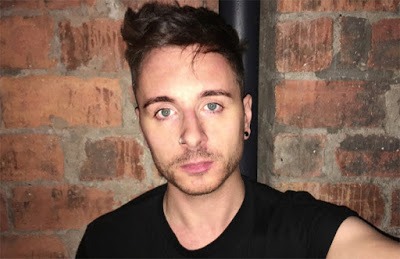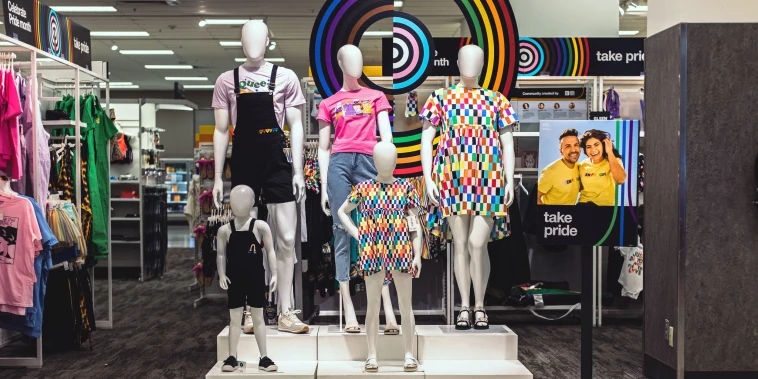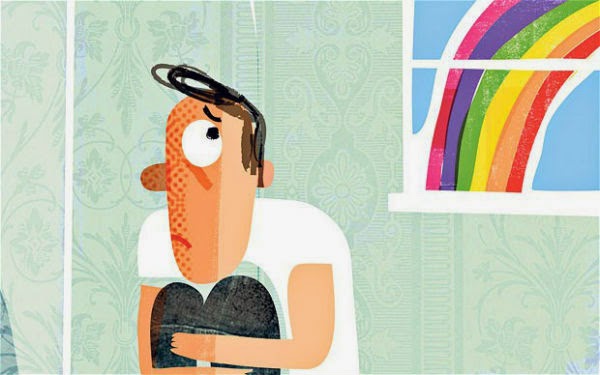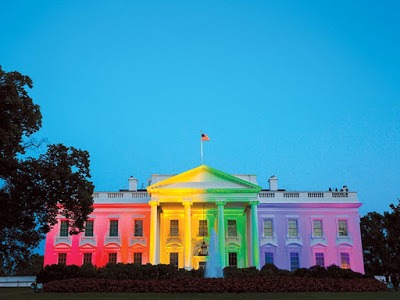How Safe is Gay Marriage? Advocates Fear Increasingly Conservative Court
Written by Joseph • October 8, 2020
The nomination of Amy Coney Barrett to the Supreme Court and fresh criticism of the 2015 gay marriage ruling by two justices has renewed advocates’ concerns. President Donald Trump’s nomination of Judge Amy Coney Barrett to the Supreme Court to succeed Justice Ruth Bader Ginsburg last month ignited fears of an increasingly conservative court rolling […]
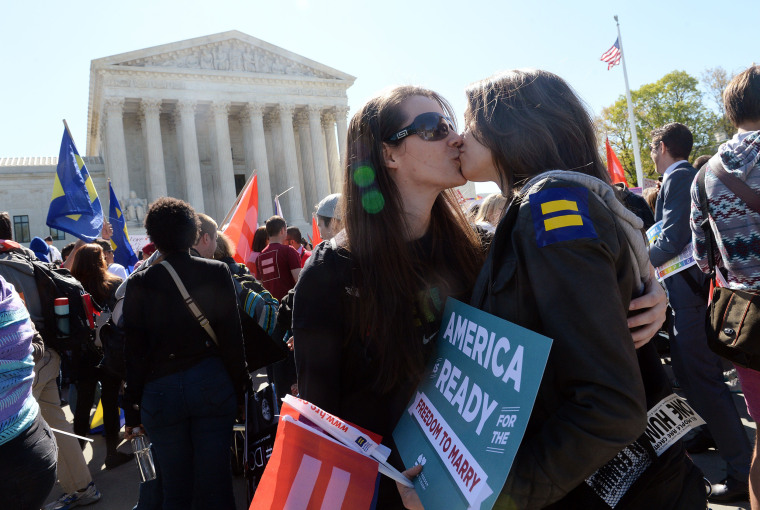
The nomination of Amy Coney Barrett to the Supreme Court and fresh criticism of the 2015 gay marriage ruling by two justices has renewed advocates’ concerns.
President Donald Trump’s nomination of Judge Amy Coney Barrett to the Supreme Court to succeed Justice Ruth Bader Ginsburg last month ignited fears of an increasingly conservative court rolling back recently gained LGBTQ rights.
Fuel was then added to the fire on Monday when two of the court’s conservative justices, Clarence Thomas and Samuel Alito, mounted a fresh attack on the landmark 2015 decision Obergefell v. Hodges, which made same-sex marriage legal across the United States.
“By choosing to privilege a novel constitutional right over the religious liberty interests explicitly protected in the First Amendment, and by doing so undemocratically, the Court has created a problem that only it can fix,” Thomas, joined by Alito, wrote. “Until then, Obergefell will continue to have ‘ruinous consequences for religious liberty.’”
“The Court could significantly water down what marriage means for LGBTQ couples across the nation to what the late, great Justice Ginsburg, called ‘skim milk marriage.'” – HUMAN RIGHTS CAMPAIGN PRESIDENT ALPHONSO DAVID
The four-page statement followed the Supreme Court’s rejection of an appeal from Kim Davis, a former Kentucky county clerk who made headlines after she denied marriage licenses to same-sex couples following the 2015 Obergefell decision. Davis, a Christian, had cited her religious beliefs, and her lawyers argued to the Supreme Court that her case came down to “whether the law forces an all-or-nothing choice between same-sex marriage on the one hand and religious liberty on the other.”
While the Court ruled unanimously against hearing her appeal on technical grounds, Thomas and Alito used the opportunity to issue a blistering critique of Obergefell, stating that Davis “may have been one of the first victims of this Court’s cavalier treatment of religion in its Obergefell decision, but she will not be the last.”
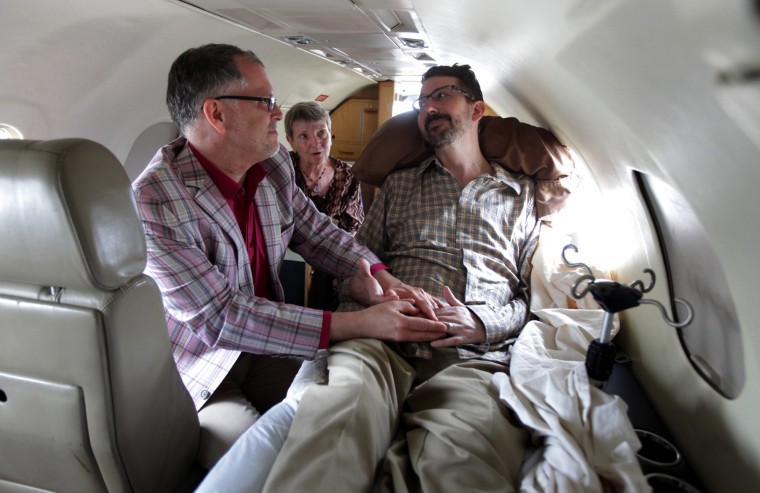
Advocacy groups were quick to hit back at the two conservative justices, with the Human Rights Campaign, the country’s largest gay rights group, saying in a statement that Thomas and Alito had “renewed their war on LGBTQ rights and marriage equality, as the court hangs in the balance.”
During a call with reporters Monday afternoon hosted by the campaign, Jim Obergefell, the plaintiff in the 2015 case, called the remarks by Thomas and Alito “deeply disturbing and upsetting.”
“They signal that they are still willing to roll back progress, to rip rights away from LGBTQ+ people, and that if given the chance they would work to overturn the right to marriage that I and so many activists and advocates have fought for,” Obergefell said. “Justices Thomas and Alito seem to imply that freedom of religion carries more weight, is more important than all other rights.”
On that same call, HRC President Alphonso David, a civil rights lawyer, said the justices’ statement “made clear that the war on marriage equality against the lives of same-sex couples is alive and well.”
“This outlook and the language in the Thomas and Alito statement is doubly troubling, as the court could soon be reshaped in a more dangerous anti-LGBTQ image if Amy Coney Barrett is confirmed by the United States Senate,” David said. “The Court could significantly water down what marriage means for LGBTQ couples across the nation to what the late, great Justice Ginsburg, called ‘skim milk marriage.’”
The Human Rights Campaign and other LGBTQ rights groups have been sounding the alarm over Barrett since before she was nominated on Sept. 26. The day before, the campaign warned in a statement that Barrett “would work to dismantle all that Ruth Bader Ginsburg fought for during her extraordinary career.”
The campaign included a laundry list of concerns, including Barrett’s defense of the justices who dissented in Obergefell v. Hodges, as well as her arguing, during a lecture at Jacksonville University in Florida, that reading Title IX protections to include transgender people is a “strain on the text,” and, in that same lecture, referring to trans women as “physiological males.”
That same day, Sept. 25, Lambda Legal came out against the Barrett nomination, calling it “rushed” in a statement. The organization also noted Barrett had once written a law review article arguing Supreme Court cases could be broken down into two categories: “precedent and superprecedent,” with the second representing decisions that are harder to overturn. It added that when asked by Sen. Sheldon Whitehouse, D-R.I., during her 2017 nomination hearing for the 7th U.S. Circuit Court of Appeals, Barrett wouldn’t answer in which category she would place the issue of marriage equality, or any other particular cases, for that matter.
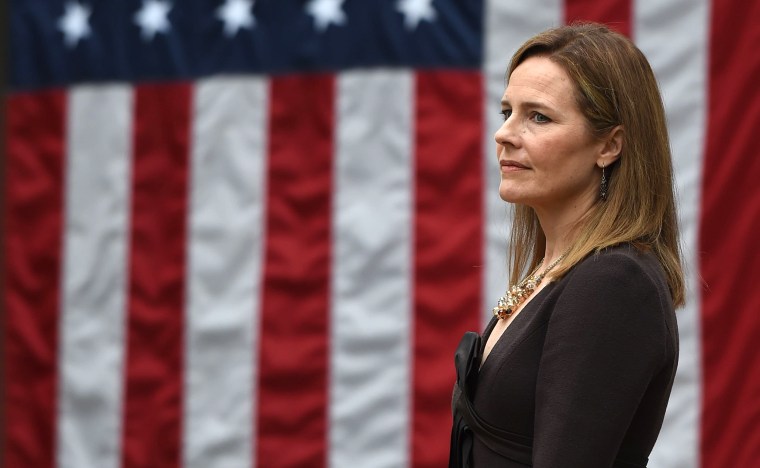
However, not everyone in the LGBTQ community is so concerned. Brad Polumbo, a journalist who is gay, recently wrote an article for The Washington Examiner in which he argued that concerns regarding Barrett are overblown. He recalled the upset within the LGBTQ community over Justice Neil Gorsuch’s nomination, and — pointing to Gorsuch’s vote in favor of gay and transgender rights in June in Bostock v. Clayton County, Georgia — argued that those fears have proven unfounded.
Polumbo also said he believes LGBTQ rights should be gained through Congress and not through the courts.
“I don’t think that a judge has to always rule in favor of the best outcome for LGBT interests,” Polumbo told NBC News. “They have to rule with what the law says … and that’s what Amy Coney Barrett says specifically she will do.”
“She says she will not impose her personal beliefs on the law, and she will rule for the law as it is written, and I believe her because she has a track record of doing that, as do many of these conservative justices,” he added.
How safe is gay marriage?
When it comes to the Obergefell v. Hodges decision, Paul Smith, a professor at Georgetown Law School, said, “There are a number of reasons why even a very conservative court is probably not going to overrule it.”
Smith successfully argued the landmark 2003 Supreme Court case Lawrence v. Texas, which decriminalized same-sex sexual activity among consenting adults, striking down sodomy laws in Texas and a dozen other states. He said he’s confident we will not see a return of such laws, as even those not as explicitly anti-gay as the one at the center of Lawrence v. Texas “were just a way of regulating same-sex conduct,” which he sees both the high court and public opinion as having advanced beyond.
Smith, who said the “precedent versus superprecedent” argument is a solely political one with no real legal basis, was also quick to note, regarding the Obergefell decision, that the many same-sex married couples across the U.S. cannot be unmarried. There are currently more than a half million households made up of same-sex married couples in the country, according to U.S. Census Bureau data released last month. To go back on gay marriage now, Smith said, would cause such a “political cataclysm that the court would be very reluctant to take on such an unpopular position.”
Jon Gould, a professor at Arizona State University’s School of Criminology and Criminal Justice, agrees. He noted that polling data shows public support for same-sex marriage has continued to rise, and that the Supreme Court’s decisions on social issues tend to hew closely to public opinion.
“As much as we say, ‘They don’t consider politics,’ of course the justices consider where the public is on particular issues,” Gould said. “The polling has just moved so fast and this issue, there is no way they’re going back from that.”
According to Gallup’s annual Values and Beliefs poll, conducted in May, 67 percent of Americans said same-sex marriage should be recognized by law as valid, matching an all-time high. When Gallup first polled Americans on the topic of gay marriage, in 1996, only 27 percent said they were in favor of it.
Gould also noted there was an increase in support for workplace protections for LGBTQ people, which the court recently ruled in favor of in June’s Bostock decision, determining that Title VII of the Civil Rights Act of 1964 protects against workplace discrimination based on sexual orientation and gender identity.
Many were surprised when Gorsuch, a Trump appointee, voted in favor of those protections, and in fact wrote the decision.
Gould argued that many “misread Gorsuch,” whom he called “not your traditional social conservative” but rather a “libertarian conservative,” hence his decision on that case coming through a “plain reading of a statute rather than a large constitutional exercise.”
Barrett, Gould said, “is a social conservative as well as a legal conservative,” adding that he thinks Republicans “will get exactly what they bargained on with this nominee.”
LGBTQ equality vs. religious freedom
But if anti-gay laws are unlikely to make a comeback, where should gay rights activists focus their attention? The answer to that lies, at least in part, in the still fluid, and at times blurry, line between religious freedom and LGBTQ civil rights, according to Gould and Smith. They said they believe the main threat to LGBTQ rights under a more conservative court lies in religious exemptions, which Gould said could “blow a hole” in constitutional jurisprudence.
“That’s where her nomination is going to be a tipping point potentially, because there’s nothing about her that suggests that she will do anything other than advance that argument,” Gould said of Barrett.
As Lambda Legal noted in its September statement, Barrett has been a paid speaker at legal conferences hosted by the Alliance Defending Freedom. The conservative legal group, which has a long track record of opposing gay and transgender rights, has been deemed an anti-LGBTQ “hate group” by the Southern Policy Law Center, though the organization contests that characterization. Among its past cases is 2018’s Masterpiece Cakeshop v. Colorado Civil Rights Commission, where the Supreme Court narrowly ruled in favor of Jack Phillips, an ADF client and a Christian baker who refused to make a wedding cake for a same-sex couple.
Religious exemption, Gould warned, allows “an activist court to expand the argument to more and more things that don’t seem like they are about artistic expression.”
“The very fact that that argument exists when it comes to someone’s immutable sexual orientation makes no sense,” he said.
He added that the same argument could have been applied earlier in America’s history by white supremacists in regards to interracial marriage.
Gould also said the religious freedom argument didn’t gain traction in the Davis case because “she was performing an entirely governmental function,” without any “potential First Amendment artistic argument to employ.”
Future of the high court
If confirmed by Election Day, Barrett would get to weigh in on Fulton v. City of Philadelphia, a case involving whether private child welfare agencies that receive taxpayer money can refuse to work with same-sex couples. How she rules there, and what arguments she uses to arrive at her decision, would offer insights into what can be expected during her time on the court, which could be decades as she is only 48.
“I would assume that she is going to be on the aggressive exemption side of those kinds of cases,” Smith said.
And while Smith posited that there might be some cause for hope on the part of LGBTQ advocates due to Gorsuch’s Bostock decision, he believes Gorsuch will likely try to distinguish between employment discrimination and issues like access to bathrooms and locker rooms, as well as participation in athletics, being decided by sex assigned at birth instead of gender identity.
Transgender rights are less well established by legal precedent, which means they are likely to be at a bigger risk of failing to advance than gay rights, Gould argued.
“The whole concept of rights are socially constructed by what people think, and the justices are following that,” Gould said. “We’re not at the point right now where trans rights are there. If we ever get to that point, you may see the court expand the rights, but we’re not, and so I just don’t see them going out on a limb for that.”
It is worth noting that the Supreme Court did rule in favor of trans worker rights, and that polling shows most Americans are opposed to discrimination in employment on the basis of sexual orientation and gender identity, although there is more opposition when it comes to sexual orientation than gender identity. Polls have additionally found a growing level of support for trans rights.
Polling also shows most Americans support allowing transgender people to serve in the military. However, bathroom access based on gender identity has been a harder sell, with a slim majority opposing such policies.
The reality of a more conservative Supreme Court has led to talk of packing the court, or adding justices, if Democrats gain control of the White House and Senate. It is an idea gaining in popularity among the left in the wake of Barrett’s nomination just weeks before the 2020 election, while President Barack Obama’s 2016 nominee, Merrick Garland, never received a Senate vote, despite being nominated 10 months before that year’s presidential election.
Both Gould and Smith suggested adding justices could be a real possibility, if Biden wins the election and the Democrats take full control of Congress. “You can put this all under the heading of: You reap what you sow,” Gould said.
Many in the LGBTQ community also fear what a Barrett nomination could mean for the Affordable Care Act (ACA), with a challenge to the landmark Obama-era legislation also set to come before the court in November.
The ACA has been especially important to the LGBTQ community, as it prohibits discrimination against LGBTQ people in health care and insurance coverage. Discrimination within the health care system has exacerbated disparities commonly found among minority groups, who face increased barriers to care.
Smith said if the court rules the ACA unconstitutional, he sees the odds of Democrats looking to add justices to the high court increasing to over 50/50.
Even without the possibility of court packing, Gould said he believes that even if religious exemptions are expanded at an aggressive rate, they “will exist for a couple generations, if that, and then a future court will close” the exemptions.
That, however, does not assuage the fears of today’s LGBTQ advocates, who fear the imminent reversal or watering down of recently won rights.
.
.
Check out the original story here: NBC Out.
.
.
Have you found the right one, or are you still searching?

Join a gay dating site where you can meet single guys from any town or city. Rely instead on Gay Dating Solutions to do the work for you! Don’t get fooled by free offers made by other sites. Gay Dating Solutions is offering a FREE 6 month promotion ABSOLUTELY no strings, request for credit card numbers, etc…it is the only site that is truly free to join!
Sign-up now: www.gaydatingsolutions.com
Download our mobile apps: https://appurl.io/jd0jaqp0
Like us on Facebook: www.facebook.com/GayDating101
Tweet us: twitter.com/GayDating101
